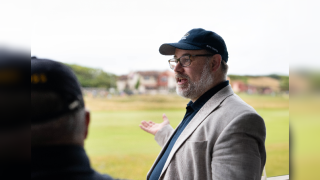It’s the last Friday of July and I leave Capacity Towers off Fleet Street in London and head to Liquid Telecom’s offices just around the corner. The Liquid Telecom CEO started his career as a telecoms lawyer and supported Strive Masiywa in the internationally recognised landmark constitutional cases that resulted in the end of the monopoly over fixed and mobile line telecommunication services in Zimbabwe.
It was the beginning of a fruitful partnership, which led to Rudnick leaving the legal world and joining Masiyiwa at Econet Wireless. Liquid Telecom began life as the satellite and voice operator Econet Satellite Services, which was founded in 1997. Rebranding to Liquid Telecom in 2004, it went on to launch a high-speed, cross-border fibre network linking southern Africa to the rest of the world in 2009.
As we sit in the surroundings of London’s legal district on the 9th floor at New Street Square, I ask Rudnick how he perceives the African marketplace has developed and evolved over the years.
"I think Africa is still a continent with huge opportunities," he responds. "If you look at when mobile phones started arriving, around 2000, at that point most Africans had never made a phone call let alone had their own telephone. Now the continent has virtually 100% penetration rates, yet there is still enormous opportunity."
Africa doesn’t have the type of legacy networks that one sees on other continents and that provides Liquid Telecom with the opportunity to come in, build new fibre networks and give people access to fast speeds and advanced digital services. Rudnick says:: "There are many African cities where we have fibre networks, FTTB, FTTH, where we routinely provide faster speeds and more services than you can get in central London."
Does the ex-lawyer believe regulators have become more supportive? "It’s an interesting question because as a telecoms operator, you never quite get the impression that the regulators are being supportive. However, a number of them have created good environments that have seen liberalisation and free market policies welcome independent players such as ourselves."
That’s not always the case, Rudnick warns, as there are some countries where Liquid Telecom hasn’t been able to enter or its had considerable difficulties in doing so. "On the whole, we’ve indeed received a lot of support and I think the business model that we have of wholesale open access fibre networks is one that regulators are generally welcoming and are not over-regulating at the moment."
Historic 60,000km Africa network
Liquid Telecom has recently signed an agreement with Telecom Egypt allowing the African operator to complete a pan-African terrestrial fibre network from Cape Town, South Africa, to Cairo, Egypt.
"We’ve been working on it, expanding our network and we’re really excited that it’s now reached fruition. It’s an historic moment that we can say that there is a single fibre network that you can terrestrially run from Cape Town to Cairo," he says enthusiastically.
The MoU will see Liquid Telecom link its network in Sudan into Telecom Egypt’s network through a new cross border interconnection, completing a 10-year project to offer a 60,000km network running the length of the continent. What’s the background to the project, which stretches the entire length of the continent?
"It’s something that Strive Masiyiwa articulated a number of years ago – the vision to create a single fibre network from the Cape to Cairo," he tells Capacity.
So when will the One Africa network officially launch? "From a contractual point of view it’s done. In terms of technical capability, that’s imminent as equipment is still being shipped and installed," Rudnick says. I ask whether it’ll launch in time for Capacity Africa, in Kigali, Rwanda at the beginning of September. "I hope so," he says. "I know that’s a bit non-committal but if you asked me directly if that’s roughly the time period we have in mind to launch than I’d say yes."
Integrating $429m buy Neotel
From one project to another, I ask whether the integration of Neotel is complete. Liquid Telecom and Royal Bakofen Holdings bought the South African operator from Tata Communications for approximately $429 million in 2016 and it has since been rebranded to Liquid Telecom South Africa.
"We’re still busy working on becoming a fully operational organisation and the new CEO Reshaad Sha [effective as of 1 June] is tasked with completing that exercise. When you do an acquisition of that size with that amount of people, you always look forward to integrating people in becoming part of one organisation," he says. "Operational or cultural differences always take a little bit more time to iron out. Liquid Telecom is a very entrepreneurial company and changing mindsets takes time."
His words somewhat reiterate those of GTT’s CEO Rick Calder, who was the front cover interview from our last Capacity magazine issue, in stressing the importance of employee engagement and culture change after a sizeable acquisition.
As I mention this, Rudnick agrees, adding "aesthetics are some of the easiest things to change". He stops, pops up quickly and heads over to his desk, saying: "In fact, let me get my laptop to show you this." He returns to the round table in his office with a "Blue is the new orange: preparing for the official launch of Neotel" video ready to play on his screen, a behind-the-scenes video to see how Liquid Telecom transformed the Neotel HQ in Johannesburg, South Africa, ahead of the official launch day.
"We closed the transaction on the Friday and when people came to work on the Monday the entire building had been repainted." The CEO tells me later that it was almost 500 painters. "Neotel’s colours were orange and ours are blue. By Monday morning, there was no orange to be seen, chairs were reupholstered, while carpets and desks had been changed. Aesthetically in terms of changing the culture, that is something one can do very quickly." We then watch the video, which is very impressive. Watch it if you haven’t seen it!
I ask him how people responded to the changes. "They said to me that Neotel had this sense of not going anywhere. When people came to work on the Monday people they said that they felt that they had resigned and went to work at a completely new company. The building looked clean, it wasn’t grubby, and there was a new sense of energy that the company was going places."
Liquid Telecom presently operates in 14 countries but "we have plans to be in at least 20 countries in the foreseeable future," Rudnick tells me. I enquire what’s in the pipeline and whether the group CEO envisages any completions by the end of the year.
"We’re working on an acquisition at the moment," he tells me. "It’s not as big as Neotel, but still a substantial one which we’re busy with at the moment. I can’t tell you who as it’s not complete yet but it’s a meaningful acquisition that will be the entry point for us into a number of new countries into Africa."
We move to developments in the subsea market. Liquid Telecom’s network provides connectivity onto a number of subsea cable systems landing in Africa.
"We’re shareholders in WACS, EASSy, WIOCC, and TEAMS for example, so we’ve got a lot of investment already in the subsea cables surrounding Africa," Rudnick says. "It’s an area we’re very interested in." The company has participated in a number of capacity upgrades and is using substantial amounts of that capacity. "We’ll certainly continue to be interested in new subsea cables as they are in the planning stages and as they are built," the CEO says, revealing that he’s watching the projects linking the continent to South America with particular interest.
"I think connecting South America to West Africa is something that I’m watching play out with interest and we’ll see where that gets to both technically and economically," says Rudnick, stressing: "But there are certainly some interesting projects which I enjoy keeping an eye on."
Cloud connectivity and digital
What about the industry becoming increasingly digitised, softwarisation, and the emergence of more hybrid-cloud models. He responds: "I think that’s exactly what’s happening, we’re at an inflection point in terms of the change that is happening." Cloud computing is becoming a strong foundation for tech innovation today and Liquid Telecom has helped growing business needs by making critical development tools accessible through Microsoft Azure Stack services for example.
"Now that there is reliable connectivity in Africa, we’ll certainly start to move out to the cloud. Up until now if you looked at small-and-medium-sized enterprises in Africa they couldn’t afford to buy servers or to pay software licence fees in order to run advanced applications. The fact that you can now have the same functionality that others have around the world, at an affordable pay-as-you-go, no upfront capex rate, is really going to be phenomenal and a game-changer."
Rudnick says Africa is really at a quantum change in terms of the cloud and it’s the piece that the continent has been missing.





